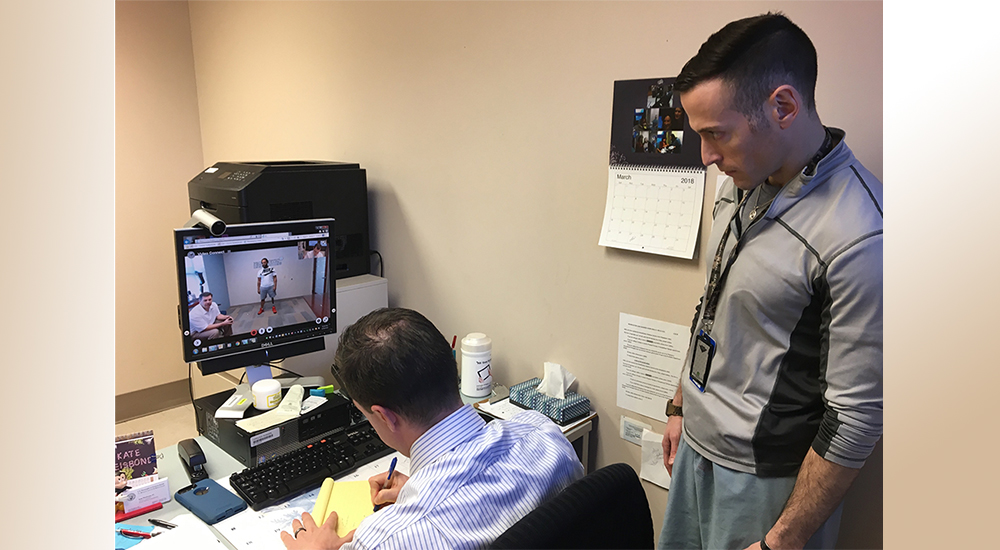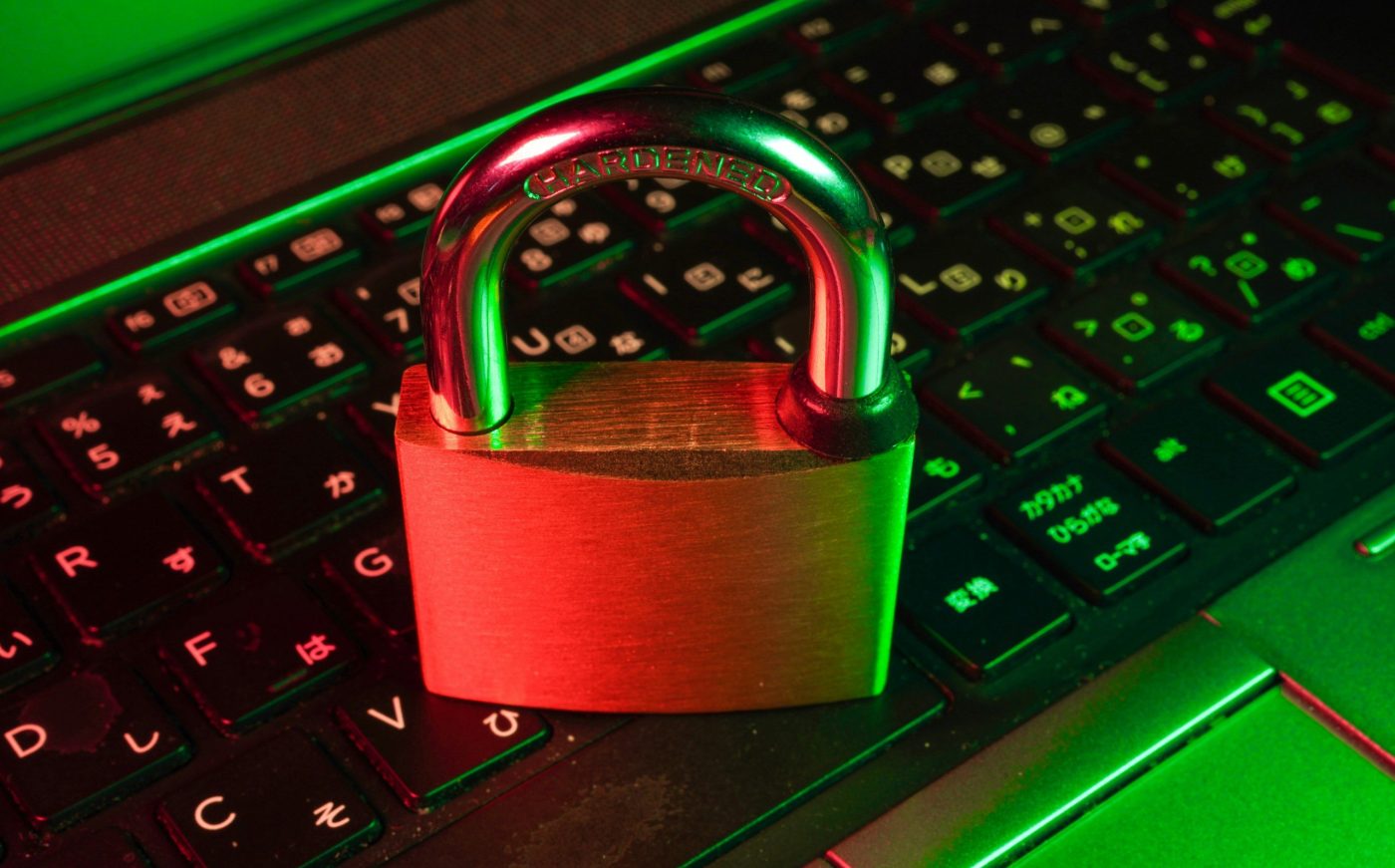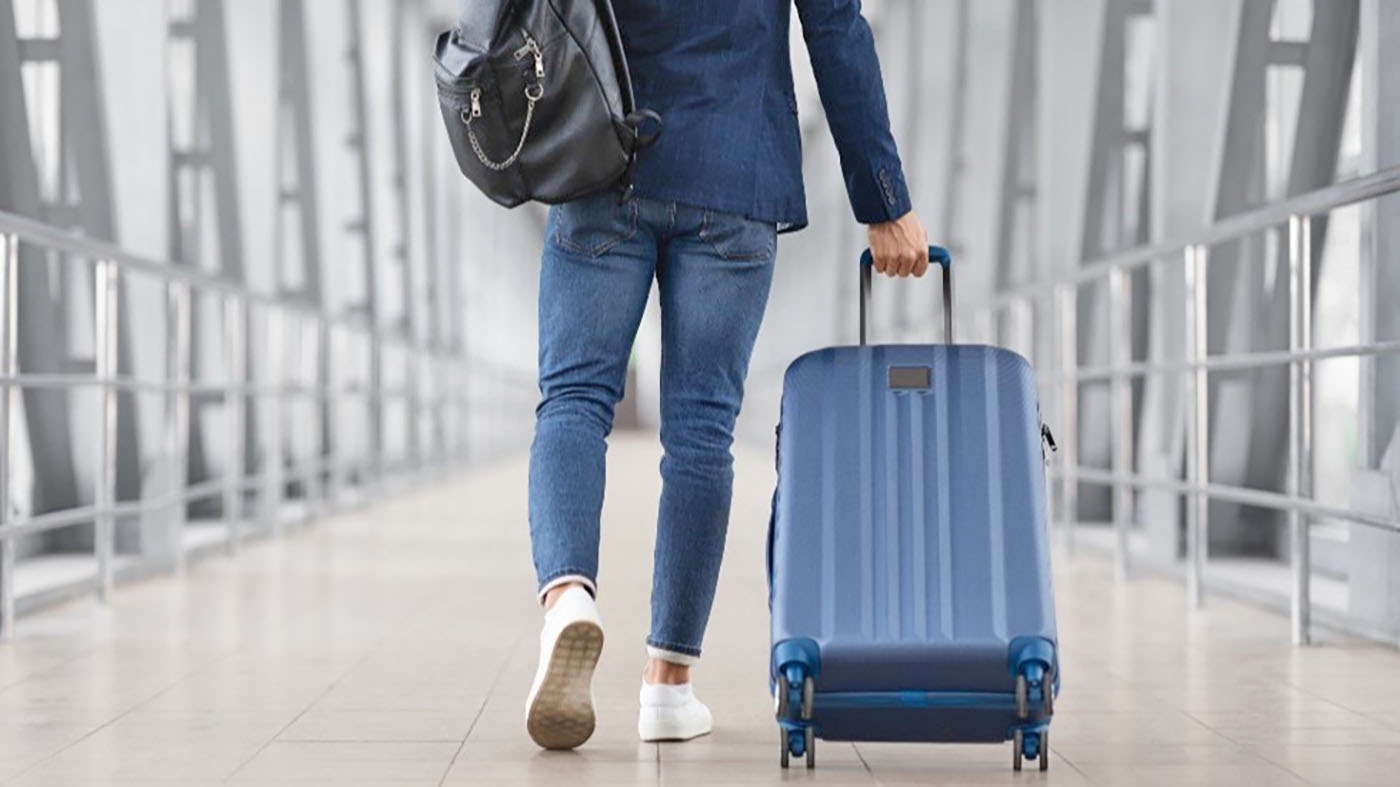VA’s rapidly expanding telehealth capabilities are actively being used in VA’s Amputation System of Care to enhance rehabilitation for Veterans across the United States. VA Provider Dr. Bradley Tucker(pictured above) conducts a telehealth visit with Veteran Justin “Nate” Knowles on screen at Prosthetic Innovations in Philadelphia.
Over half of VA’s 25 amputation specialty sites have been providing telehealth care for more than five years to connect VA providers and Veterans with limb loss. Veterans with amputations have unique needs and often require access to a prosthetist to fabricate an artificial limb to improve their functional ability. It’s important for prosthetists to be active members of the rehabilitation team to promote the best outcome.
At times Veterans will opt to choose a community prosthetist closer to their home. In this situation, the VA uses video conferencing or telehealth to connect the team altogether.
Care extends to Veterans’ homes
VA Telehealth Amputation Clinics are currently performing everything from prosthetic limb evaluations to follow-up visits and prosthetic limb checkouts. Opportunities for these telehealth services are no longer from VA facility to VA facility only; now the care extends from VA facilities to Veterans’ homes, community prosthetists and physical therapists, and even to the Veteran’s workplace.
Partnering with community prosthetists has been a major focus for VA’s Amputation System of Care in 2018, and the VA Medical Centers in Philadelphia, Richmond, and Tampa have been leaders in this area.
“VA is committed to providing comprehensive services regardless of a Veteran’s distance from a VA facility,” said Dr. Lucille Beck, Acting Deputy Under Secretary for Health for Policy and Services. “Telehealth to community prosthetists is truly a game changer for Veterans with amputations nationwide.”
“In coordination with the VA physical therapist and prosthetist, we are utilizing the latest technologies to make Veteran prosthetic care more efficient and convenient,” said Michael Monteiro of Powell Prosthetics and Orthotics in Richmond, VA.
“I felt totally comfortable…”
Veterans are finding the convenience unbeatable. “I felt totally comfortable in the setting since this is where I spend a lot of time,” said Veteran Joe Sanphy. “I know the staff. There are no parking issues and we get immediate care.”
While convenience is important, the time spent not traveling is also significant. Attending prosthetic appointments often requires Veterans to take time off from work, so the convenience of being able to use a smartphone for a visit with the Amputation Team caters to the needs of the Veteran.
“Having the option of video conferencing was very convenient for me,” said Keith Chantree, a Veteran at the Richmond VAMC. “It allows me to video conference into my appointment without having to travel anywhere or having to take time off from work…”
About the author: Patricia Young is a Physical Therapist and Certified Prosthetist and Amputee Rehab Coordinator
Contributing authors: Cindy Poorman is the National Amputation Program Manager and National Telerehabilitation Manager, Kathleen Weisbond is the VISN 4 Amputation Rehabilitation Coordinator, Angela Courtade is a Prosthetist/ Orthotist and Regional Clinical Director
Topics in this story
More Stories
Black Lab Raisin reminds Veterans of life outside the hospital, brightens their lives with her endless capacity for joy.
VA remains open for business and is closely monitoring the Change Healthcare (CHC) cybersecurity incident.
Take the stress out of travel. My HealtheVet makes preparing for your time away easy with these five quick tips.






